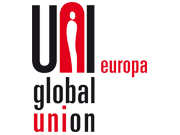News
Reinforcement of the models of union organising in Turkey - report

ISCOS, the Institute for Trade Union Cooperation for Development, supported by CISL, has, since the 1980s, contributed to the strengthening of ties with trade unions in east Europe and the development of unions and their role, through cooperation on the basis of an exchange of experience and information. The fact that many firms have relocated production to this area provides clear evidence that cooperation is a necessity in these regions that form an integral part of the rest of Europe from the point of view of economic, industrial and social relations.
Since 2003, ISCOS, on the basis of cooperation with Turkish unions, has strengthened the relations developed by CISL earlier. Responding to the demands of local unions and attentive to the requirements of the trade union environment in Turkey, a series of activities have been organised throughout the years, starting with seminars. These seminars have dwelled on various sectors such as food, tourism, textiles and different aspects of union activity such as “gender mainstreaming”.
The new project which was launched was titled “Renforcer les modèles d’organisation syndicale en Turquie: secteurs banque, bureau et commerce” and co-financed together with the European Union, was directed to the banking and commerce sectors, whose common characteristic is being under intense European pressure. The project, which had been implemented before and thus has a well- established structure, has the character of a training programme directed to the internal organising strategies and models of unions.
Expressed in very broad terms, the situation that unions find themselves in this country is extremely complex. The legal and social situation prevents unions from meeting their duties adequately and broadening their membership: the existence of thresholds at both sector and enterprise level for the authorisation of the union and the requirement of notary public attestation in the signing up process restricts and prevents the freedom of association in grave manner. Given such an environment, the purpose of the project was selected as the reinforcement of the models of union organising in the workplace and the enhancement of the capacity to set up relations with workers.
In addition to ISCOS, the organisations that were partners in this project are as follows: from the Turkish side, the CNI (the National Commission for Integration) and the sector federations, Tez Koop-İş (Türk-İş) and Sosyal-İş (DİSK) for the commerce sector and Basisen (Türk-İş) for the banking sector; and in cooperation with them, SDA - Social Development Agency, UNI Europa, the European 44 confederation for the banking and commerce sectors, FIBA-Cisl, the Italian federation of banking and insurance employees, and FECOHT-CCOO, the tourism and commerce federation of Spain, as well as the collabotation of Orietta Raghetti (SINDNOVA-Cisl), Claudio Arlati (Cisl) and Hasan Aktaş.
Within the scope of the seminar component of the project, five training programmes were held, each lasting for five days. A practical phase was stipulated for the period after the ending of each seminar, during which the participants would be able to implement the knowledge gained. In this phase, the participants formulated and implemented activity plans, recounted in the following pages of this publication.
The training seminars were composed of various modules that allowed for an evaluation of trade union activities from different angles:
- Developing theoretical knowledge
- Developing communication techniques
- Developing individual activities
Turkish and European experts collaborated at the seminars. Thanks to this, a comparative study, in the true sense of the word, of Turkish and European trade union systems was made possible. The fact that the training was organised together and in a participatory spirit also allowed for corrections to be made in accordance with the needs of the participants to the five successive training seminars.
The project structure and the outcomes of the training are described in the evaluation report that you will hereunder:![]()

